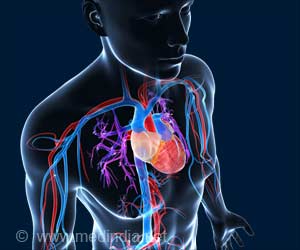The sympathetic nervous system plays an important role in exercise responses, the digestive system, the immune function, among others.
‘Covid-19 survivors exhibit suppressed sympathetic nerve activity and pain perception, as well as an exaggerated heart rate response to orthostasis.’
“The impact of this alteration in fight-or-flight response, especially if prolonged, means that many processes within the body could be disrupted or affected,” said researchers including Abigail S.L. Stickford, Department of Health and Exercise Science, at the Appalachian State University in North Carolina, US.
“These results are especially important given the emerging evidence of symptoms like racing hearts being reported in conjunction with ‘long Covid’,” they added.
The team conducted a series of tests to show that young adults recovering from SARS-CoV-2 have elevated resting sympathetic activity, but similar heart rate and blood pressure, compared with control subjects.
The survivors of SARS-CoV-2, the virus causing Covid-19, also exhibit suppressed sympathetic nerve activity and pain perception during a cold pressor test compared with healthy controls.
Further, these individuals display higher sympathetic nerve activity throughout an orthostatic challenge, as well as an exaggerated heart rate response to orthostasis.
“If similar autonomic dysregulation, like that found here in young individuals, is present in older adults following SARS-CoV-2 infection, there may be substantial adverse implications for cardiovascular health,” the researchers said.
The study also noted limitations that the researchers do not know how Covid-19 subjects’ nervous system activity “looked like” before they were diagnosed with Covid-19. However, these findings are consistent with the increasing reports of long-Covid symptoms pertaining to problems with the fight-or-flight response, they said.
Source: IANS



